Learning and Research new role
Home › Forums › Effecting change and the roles of the subject teachers and teacher-librarians / librarians in inquiry › Learning and Research new role
- This topic has 4 replies, 3 voices, and was last updated 1 year, 10 months ago by
 Jannath.
Jannath.
-
AuthorPosts
-
4th March 2024 at 11:13 am #82658
Hi all,
Sorry if this isn’t in the right place – I couldn’t quite decide where to put this. I’ve done enough persuading to my SLT that I have now been promoted to a newly created role “Learning and Research Co-ordinator” which is an additional responsibility to LRC Manager. This position includes introducing the FOSIL framework to all staff, and implement it across all subjects and even staff research.
I honestly have no idea where to start! I know in 4 weeks I would like to get the ball rolling, but until then I would like to start preparing. I am now in charge of KS3 (Years 7-9) Literacy Curriulum whereby I see each form class once every 2 weeks – so instruction is also possible here.
The newly appointed head teacher sees how important inquiry is, is very enthusiastic, but would like to see a curriculum/framework/plan moving forward and quite frankly I don’t know where to begin.
Any help would be greatly appreciated!
4th March 2024 at 11:17 am #82659How exciting for you Jannath. I am sure Darryl and Jenny will be along in a while with lots of words of wisdom but I just wanted to let you know that I run a membership for school librarians on the same path. I do have some free resources that you can dip in and out of but give me a shout if I can be any help. My email is [email protected] and my website can be found here
Best Wishes
Elizabeth
5th March 2024 at 2:59 pm #82660Thanks, Elizabeth, and congratulations, Jannath – your extraordinary journey with FOSIL continues.
I have some thoughts on the curriculum/ framework/ plan, but will need to return to this towards the end of the week.
In relation to introducing FOSIL to staff, some of the FOSIL Presentations might be helpful, especially those we developed for INSET at Oakham School and, more recently, Blanchelande College.
Your responsibility for staff research is exciting. Although we lost touch with our colleague, Chris Foster, when we left Oakham School, he was promoted to a similar role to yours, and we had begun to discuss the topic of student research. He shared some of his early thoughts in the following post before we left Oakham, which may be helpful: Making Sense of Evidence in Education. I have some further thoughts on this, which I will share as soon as I am able.
11th March 2024 at 9:47 am #82682Hello, Jannath.
I would make the focus developing engaged and empowered inquirers over Years 7-9.
This would allow you to use the Portrait of an Engaged and Empowered Inquirer at Year 6 (see below) as a starting point for Year 7.
You would then be able to use the Portrait of an Engaged and Empowered Inquirer at Year 9 (see below) and the Portrait Attributes Developed Through Inquiry in Years 7-9 (see below) to frame their development over this time according to your specific circumstances, and bearing in mind that the skills listed in the Portrait Attributes Developed Through Inquiry in Years 7-9 – which link to Empire State Information Fluency Continuum graphic organisers – are indicative, and not prescriptive.
In terms of the inquiry process, the FOSIL Inquiry Cycle Skills Sets (see below) could be helpful in identifying a more specific focus for each year, as could the FOSIL Priority Skills in Transition Years (see below).
For example, our Year 9 Interdisciplinary Signature Work Inquiry at Blanchelande College has developed as its specific focus reading and reasoning within each stage of the inquiry process, which requires use of and reference to reliable sources, with a view to an oral presentation and Q&A for their GCSE English Language NEA. This is different to the Year 9 Individual Project that we developed at Oakham School, which had as its specific focus formally presented persuasive/ argumentative writing based on evidence uncovered in reliable sources in response to a personal inquiry question formulated by each student.
The Signature Work inquiry, or equivalent, in Year 9 serves, then, as a culminating project.
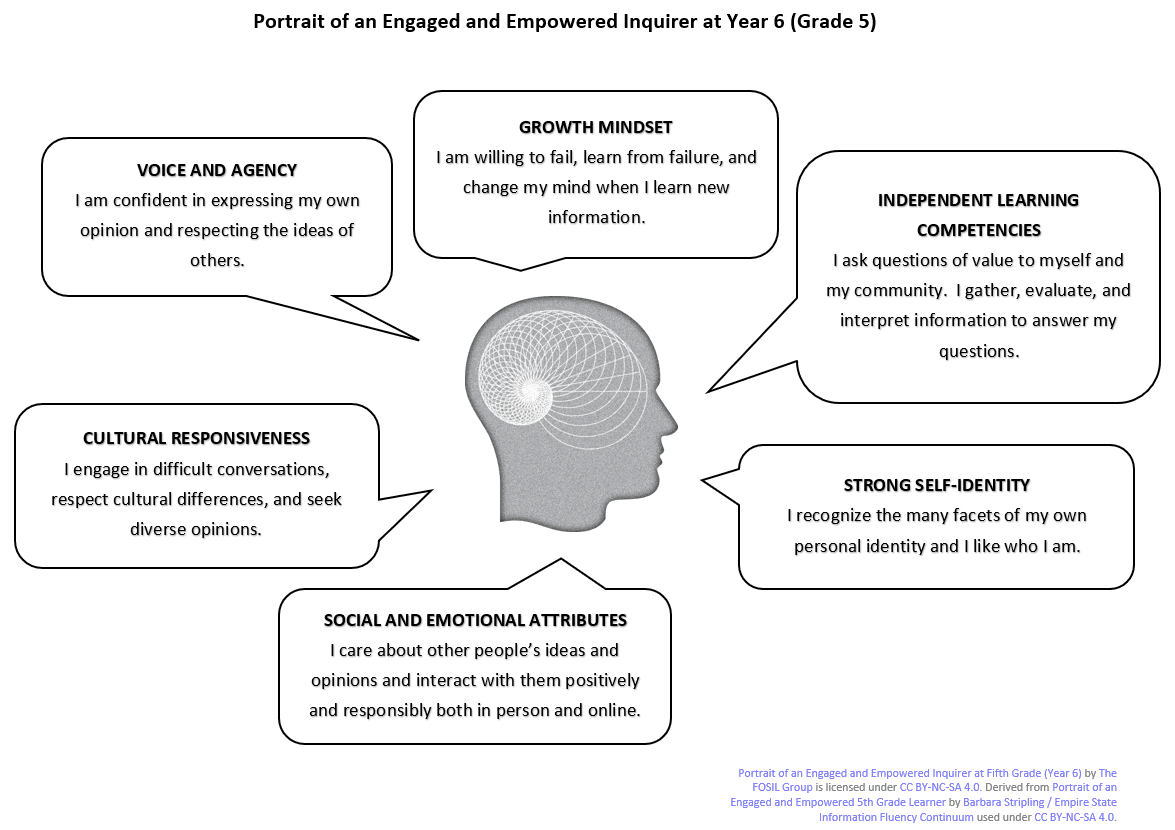
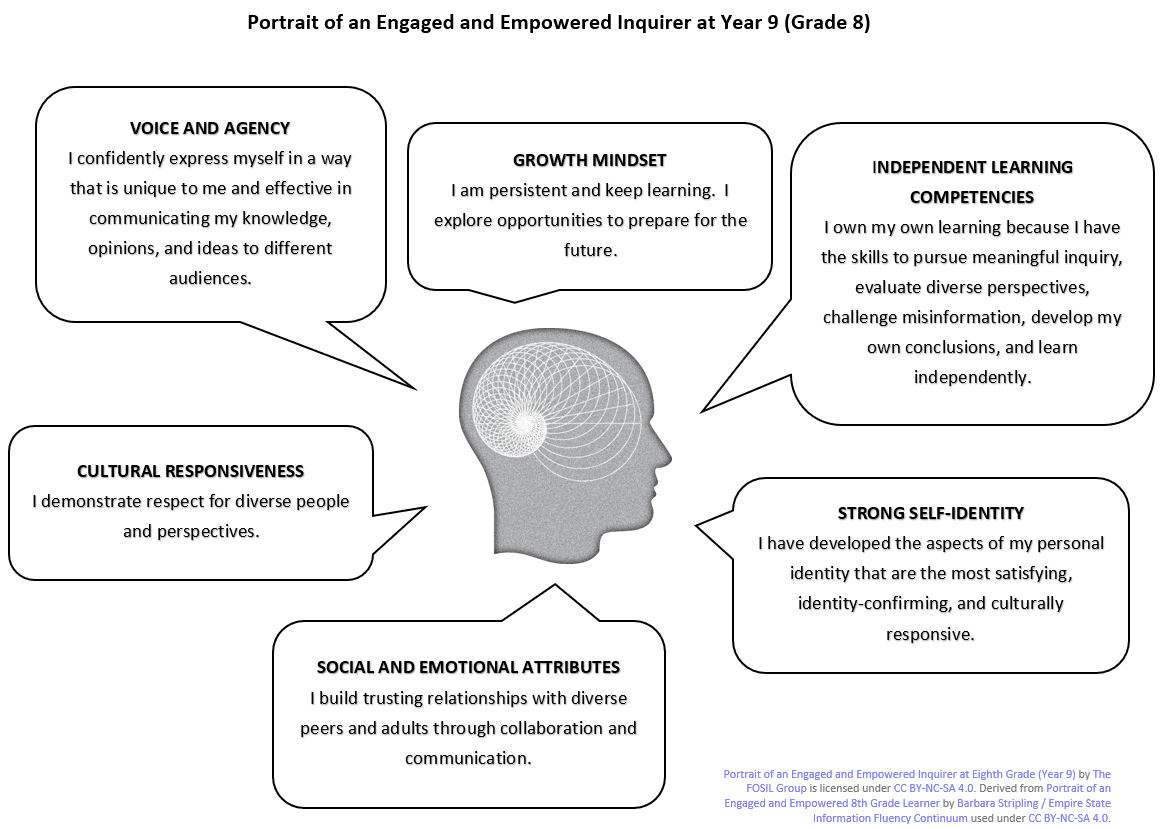
Portrait Attributes Developed Through Inquiry in Years 7-9 (PDF download).
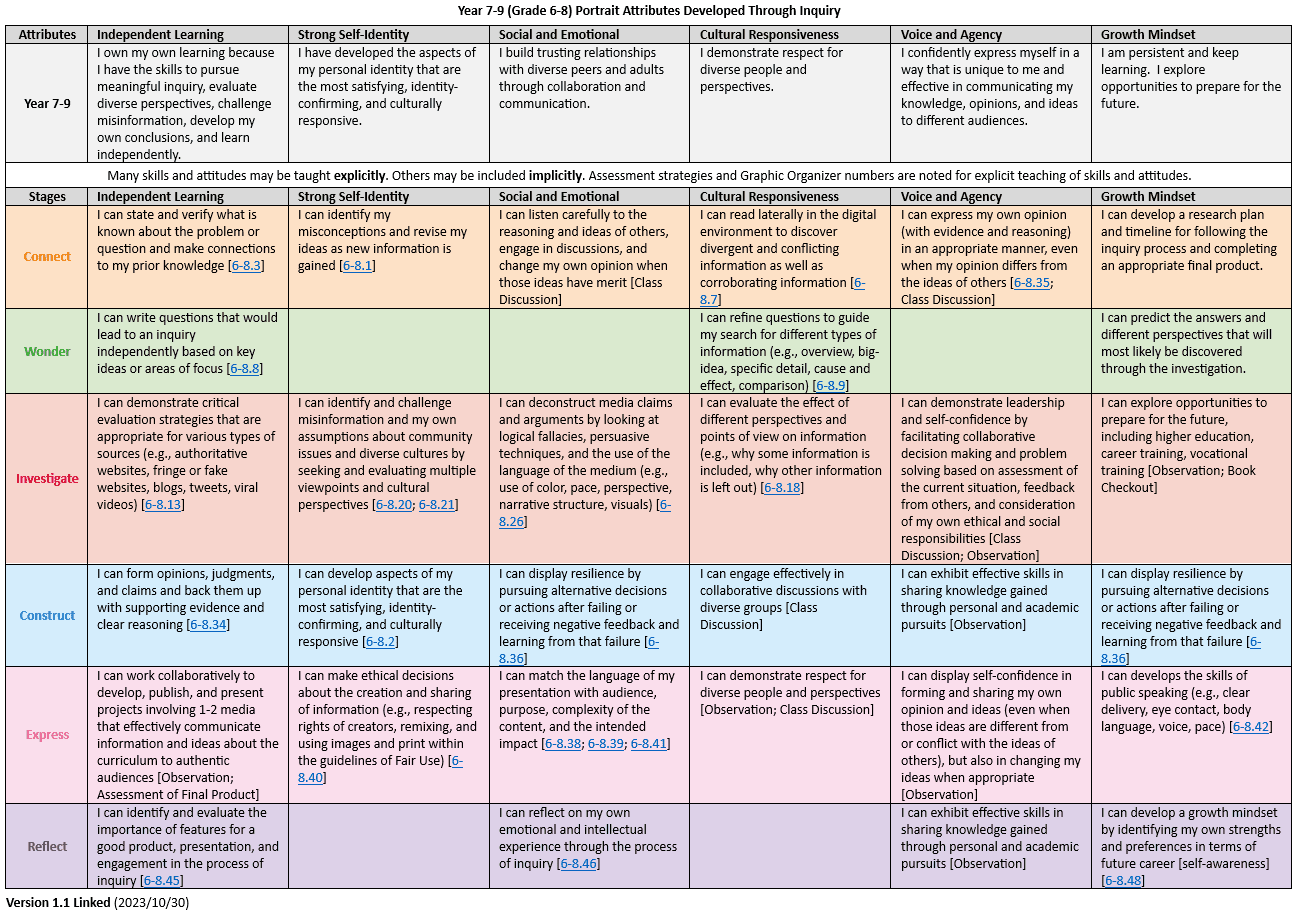
FOSIL Inquiry Cycle Skill Sets | Download as PDF or PNG
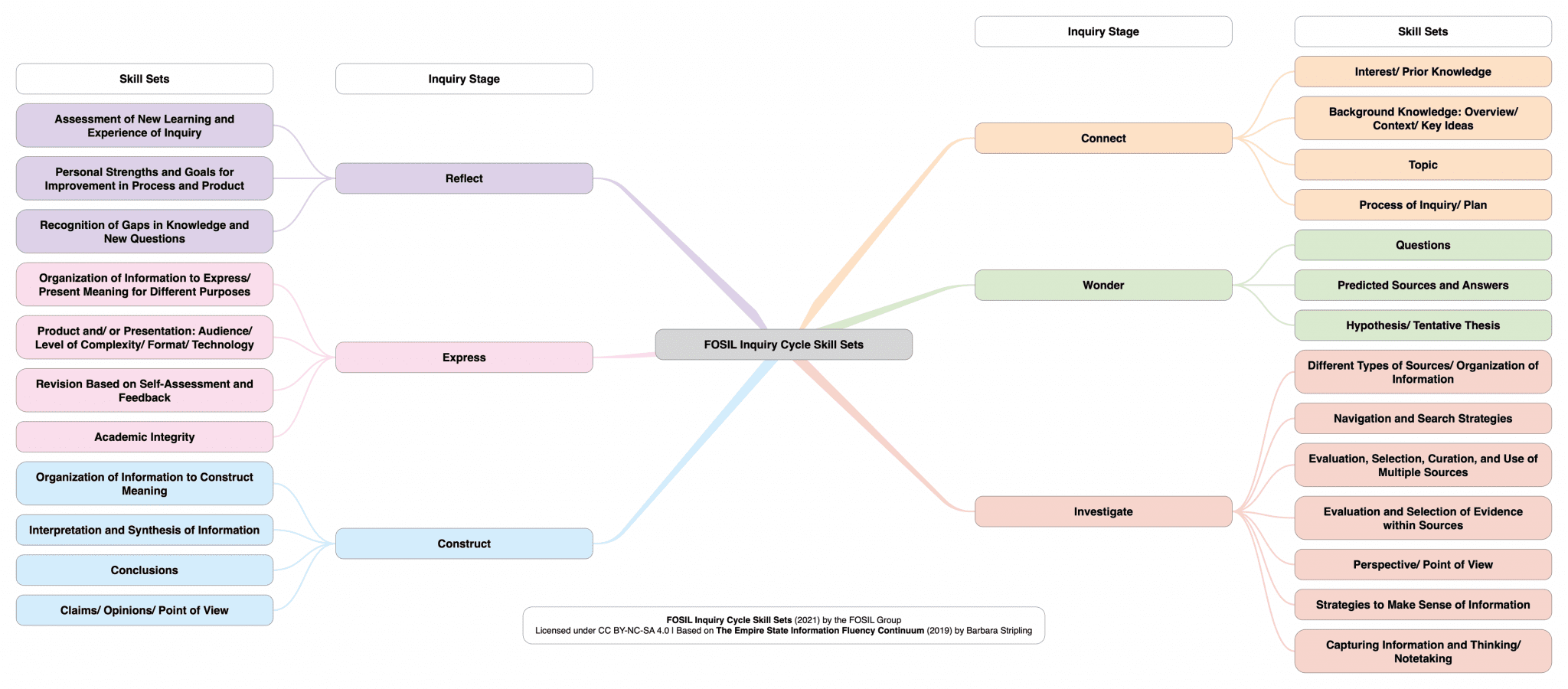
FOSIL Priority Skills in Transition Years (PDF download)
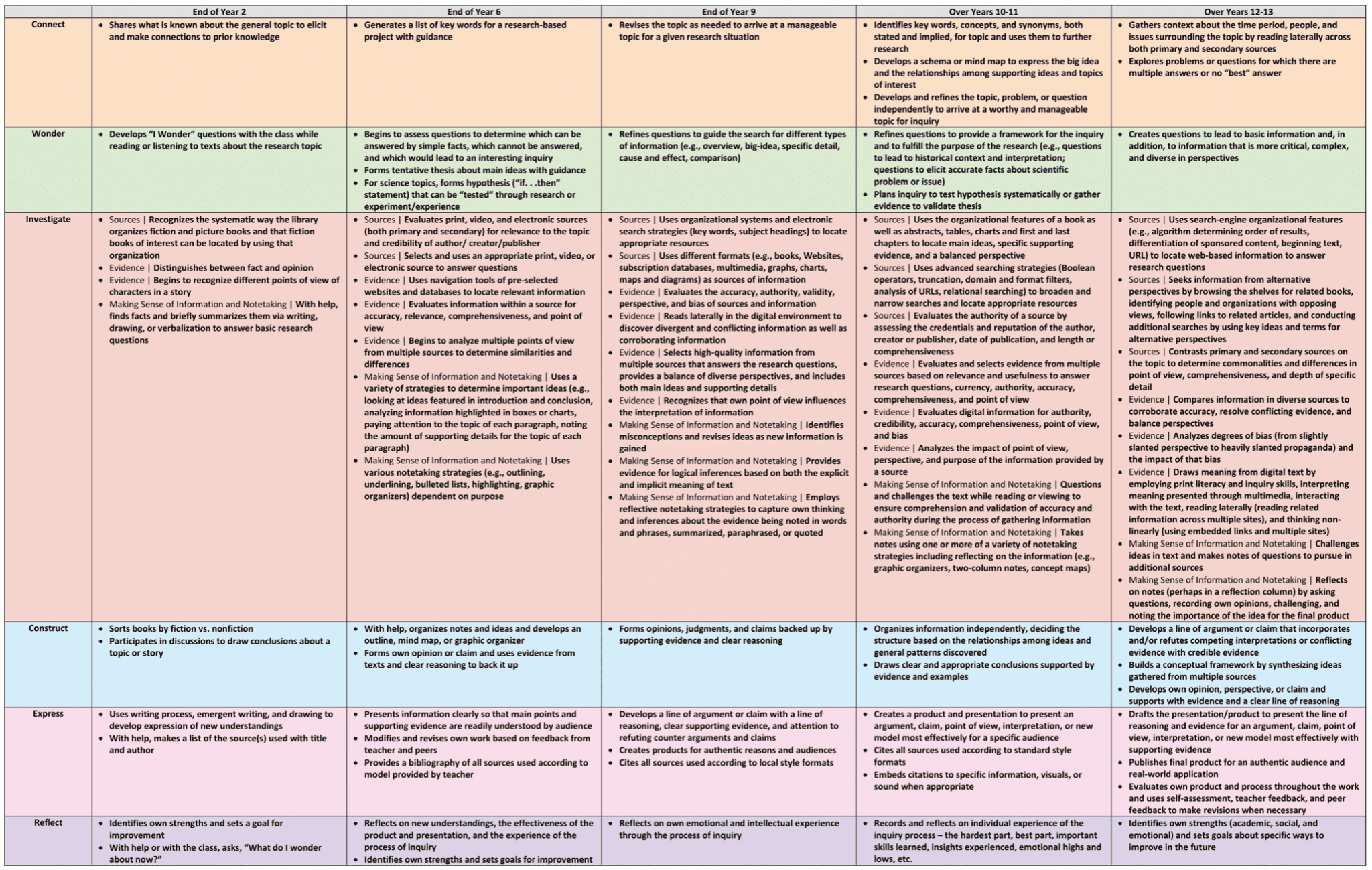
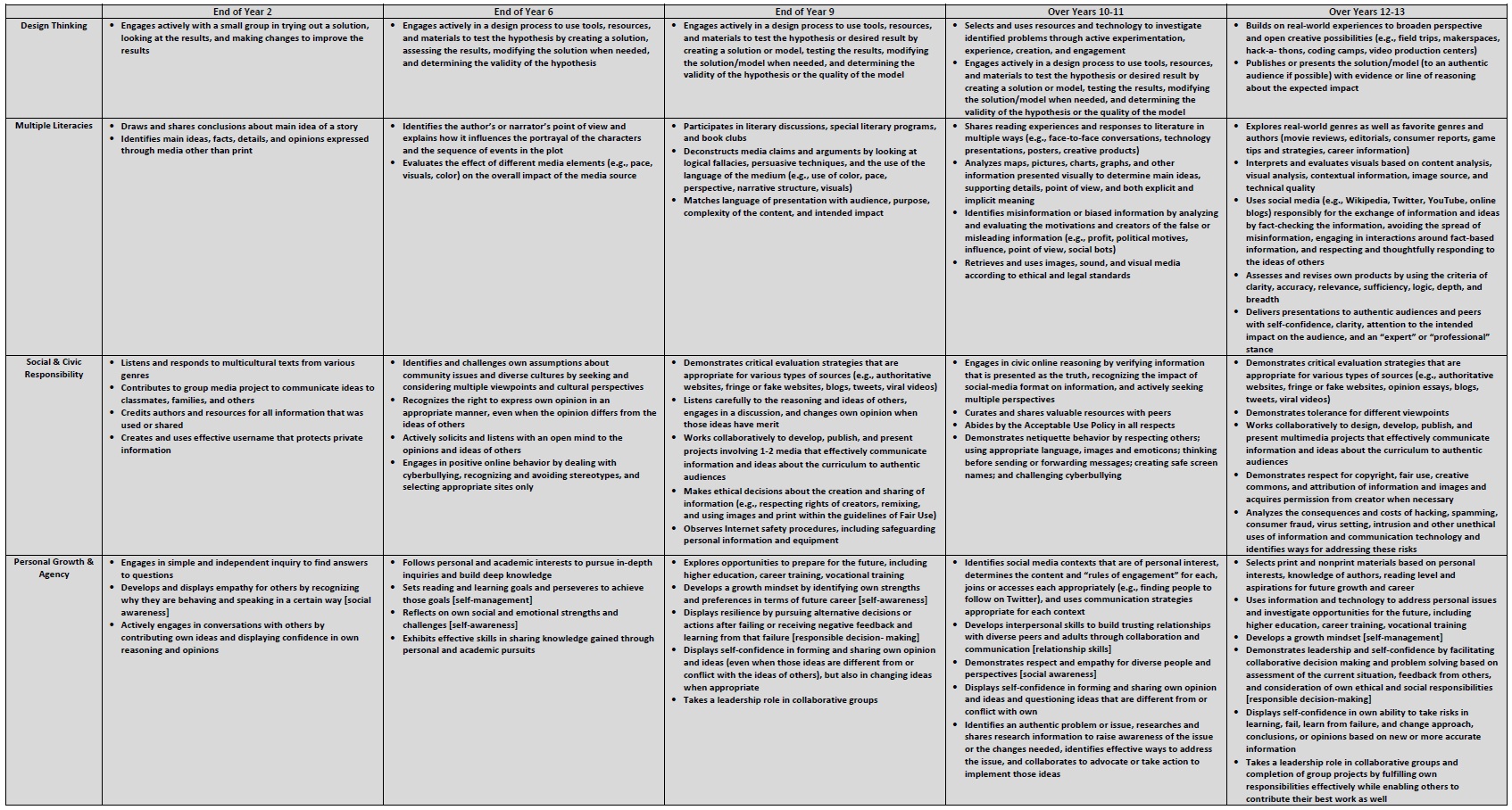 19th March 2024 at 11:37 am #82826
19th March 2024 at 11:37 am #82826Hi Darryl,
To have it in one post is incredibly helpful. I will be over the next week and a half going through the above presentations and resources to create a clearer plan. Elizabeth will also be helping me plan for KS3 Literacy, which I’m hoping with some clear guidance, I can incorporate throughout the year.
I’m set on completing a Year 9 project, and the set-up is very similar to this post: https://fosil.org.uk/forums/topic/year-9-fosil-inquiry-skills-project/ . Currently, I have so far led on an individual inquiry project with Year 9, with the topic being “Context” in relation to the GCSE texts English will be teaching in Year 10. They have been asked to look into the context of either Romeo and Juliet or The Empress by Tanika Gupta. I had maybe a week to plan this so I know I could have done better – and even teamed up with the History department. With the information above, I think I can plan better for the next academic year.
I suppose I’m slightly more confused by whether I should use the literacy lessons as a means to start developing the inquiry mindset in Year 7 and 8 or if I should see my role as learning and research co-ordinator as separate to KS3 literacy and develop the inquiry mindset as a cross-curricular project. In terms of having a framework and criteria, I will use the above Year 7 – 9 portrait of an engaged learner and priority skills and present this to SLT to begin introducing staff to Inquiry from the new academic year. What I do need to iron out is where I will place all the action!
I will be going through all the above links (again, thank you so much) and hopefully I can gain a clearer picture before I start my work with Elizabeth!
-
AuthorPosts
- You must be logged in to reply to this topic.


